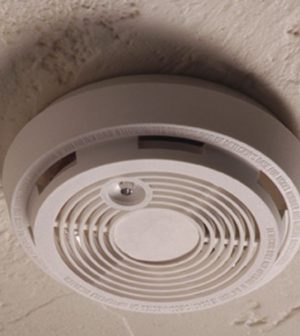- The Best Time of Day to Drink Bone Broth to Maximize Health Benefits
- 8 Ways to Increase Dopamine Naturally
- 7 Best Breads for Maintaining Stable Blood Sugar
- Gelatin vs. Collagen: Which is Best for Skin, Nails, and Joints?
- The Long-Term Effects of Daily Turmeric Supplements on Liver Health
- Could Your Grocery Store Meat Be Causing Recurring UTIs?
- Are You Making This Expensive Thermostat Error This Winter?
- Recognizing the Signs of Hypothyroidism
- 10 Strategies to Overcome Insomnia
- Could Artificial Sweeteners Be Aging the Brain Faster?
Silent Killer: Watch Out for Carbon Monoxide Dangers This Winter

Carbon monoxide poisoning can prove fatal without a warning, because it can’t be seen, smelled or heard.
It’s important to be aware of it, especially during winter when you’re indoors and using heat sources to stay cozy.
The Nebraska Regional Poison Center has some tips for preventing carbon monoxide (CO) poisoning and recognizing symptoms of exposure to CO.
CO is a gas produced when fuels burn incompletely. This includes gas- and wood-burning fuel sources, such as furnaces, fireplaces, stoves, water heaters, gas clothes dryers and cooking stoves, space heaters and gas-powered grills, generators and power tools.
Poisoning happens when a person inhales either high levels of the gas over a short period or low levels over a longer time. Symptoms can resemble other health conditions and include headache, nausea, vomiting, dizziness, drowsiness, confusion and loss of consciousness.
If you suspect someone is experiencing carbon monoxide poisoning, get that person to fresh air immediately. You may need to call 911. The person may need to be treated by doctors. Your local poison center can assist you.
The Nebraska Regional Poison Center offers several tips to protect yourself from this deadly gas:
- Install a carbon monoxide detector on every level of your home.
- Have all fuel-burning appliances inspected regularly. Ventilate your fuel- and gas-burning heaters to the outdoors.
- Never use a charcoal grill or hibachi indoors.
- Never leave a car running in an attached garage, even with the garage door open. Have your vehicle’s muffler and tailpipes checked regularly.
- Don’t sit in your car with the engine running if deep snow or mud is blocking the exhaust pipe.
- Run generators at a safe distance from the home — never next to a window, door or vent.
More than 400 people in the United States die every year from carbon monoxide poisoning, according to the U.S. Centers for Disease Control and Prevention. CO poisoning also leads to more than 15,000 emergency room visits each year.
The CO death rate is highest among people 65 and older, according to a center news release.
You can reach poison control at 1-800-222-1222. When you call, you will talk immediately to a registered nurse or pharmacist.
More information
The National Capital Poison Center has more on preventing and responding to poisoning emergencies.
SOURCE: Nebraska Regional Poison Center, news release, Feb. 9, 2021
Source: HealthDay
Copyright © 2026 HealthDay. All rights reserved.










